This article was co-authored by Peter Gardner, MD. Peter W. Gardner, MD is a board certified physician who has practiced Gastroenterology and Hepatology for over 30 years. He specializes in diseases of the digestive system and liver. Dr. Gardner earned his Bachelor’s degree from the University of North Carolina and attended Georgetown Medical School. He completed his residency in Internal Medicine and then his fellowship in Gastroenterology at the University of Connecticut. He is a previous Chief of Gastroenterology at Stamford Hospital and remains on the staff. He is also on the staff of Greenwich Hospital and New York (Columbia) Presbyterian Hospital. Dr. Gardner is an Approved Consultant in Internal Medicine and Gastroenterology with the American Board of Internal Medicine.
There are 11 references cited in this article, which can be found at the bottom of the page.
wikiHow marks an article as reader-approved once it receives enough positive feedback. This article received 12 testimonials and 100% of readers who voted found it helpful, earning it our reader-approved status.
This article has been viewed 603,863 times.
Gastritis is a painful stomach condition that is commonly caused by an infection from H. pylori bacteria, regularly taking certain pain relievers, heavy alcohol consumption, or stress. The symptoms of gastritis include appetite loss and weight loss, nausea and vomiting, pain in the upper abdomen, belching and bloating, and/or a feeling of being full even after eating just a little. You can treat the symptoms of gastritis with a few healthy lifestyles and eating habits, as well as with medication. Always talk to your doctor before you make any changes or take any medications to make sure they’re safe for you.
Steps
Making Healthy Lifestyle Changes
-
1Get at least 10 minutes of aerobic exercise a day. Aerobic exercise has been clinically proven to reduce levels of anxiety and depression, which will help prevent severe symptoms of gastritis. Regular exercise also improves blood flow and aids in digestion, both of which can help improve your symptoms. However, strenuous exercise can make your symptoms worse, so be sure to use light aerobic activities such as:[1]
- Walking or jogging for at least 10 minutes
- Yoga
- Tai Chi or Qi Gong, a meditative martial art developed in China
- Dancing
- Biking
-
2Use relaxation techniques to calm yourself when you get upset. Getting angry or emotionally upset can trigger your gastritis symptoms, so using a relaxation technique that works for you can help relieve symptoms when you feel them coming on. As soon as you feel yourself getting upset, go to a relaxation technique that will settle you down so your gastritis symptoms don’t get too severe. Some specific techniques that might prove useful include:
- Mindful or mantra meditation
- Yoga
- Deep breathing
Advertisement -
3Find ways to manage your stress to improve digestion.[2] Stresses causes inflammation in your stomach as well as an overproduction of stomach acid, both of which will worsen the symptoms of gastritis. Identify the stressors in your life so you can avoid them or be better prepared to deal with them so they don’t cause your symptoms to flare up.[3]
- For example, if you hate the traffic during your commute, leave earlier to avoid it, or listen to a book on tape to distract yourself. If your family squabbles during the holiday, take a break to go for a walk and relax.
- If your gastritis is acting up, try calming down with an enjoyable activity like reading a book, listening to music, practicing a hobby, or having dinner with a friend.
- Positive social interactions, such as laughing with friends, produce oxytocin which helps to reduce stress levels.[4]
-
4See a counselor or therapist if you need help managing anxiety and stress. Chronic stress and anxiety can wreak havoc on your digestive system and cause your gastritis symptoms to flare up and get more severe. Talking with a professional counselor is a proven way to work through your problems and relieve stress. They can give you tips to help you manage stress in your daily life. Search online for a counselor, therapist, or psychiatrist near you or ask your doctor for a referral.[5]
- If you feel like you cannot cope with life, have suicidal thoughts, or are using drugs or alcohol to cope, then you should seek a mental health professional immediately. There are people who care about you and you can find help to deal with any issues that you’re having.
-
5Avoid smoking and drinking to reduce stomach irritation. Alcohol can cause your gastritis symptoms to get worse and smoking causes stress to your digestive system and your stomach lining, which can cause your gastritis symptoms to flare up. Avoiding drinking alcohol and smoking can help reduce the severity of your symptoms.[6]
-
6Make sure you get enough restful sleep every night. Lack of sleep will affect your digestive health and make your gastritis symptoms worse. Most people need at least 7 hours of restful sleep each night, so make sure you get enough to help your body deal with the negative symptoms of your gastritis.[7]
- Lack of sleep has a host of negative health effects, from weakening the immune system to increasing the risk of obesity.
- Getting enough sleep will also reduce your stress levels.
- Limit the use of computers and smartphones near bedtime, as they can interfere with sleep.
Using Diet to Minimize Symptoms
-
1Add more fruits and vegetables to your diet. Gastritis affects the absorption of key vitamins and nutrients such as vitamin B12, calcium, zinc, flavonoids, and magnesium, so it’s important that you eat fruits and vegetables that are rich in them so you’re giving your body what it needs to be healthy. Focus on eating fruits and vegetables that are high in flavonoids, antioxidants, vitamin B, and calcium, such as:[8]
- Antioxidant-rich foods: Blueberries, cherries, tomatoes, squash, bell peppers
- Foods rich in Vitamin B and calcium: Almonds, beans, whole grains, spinach, kale
- Foods with flavonoids that inhibit H. pylori: Apples, celery, cranberries
-
2Avoid foods and drinks that irritate your stomach.[9] Gastritis can be aggravated by eating heavily processed, fried, or very spicy foods. If you can, cook your own food from fresh ingredients, and avoid:[10]
- Acidic beverages like coffee, sodas, or citrus-based juices
- Refined foods, such as pasta, white bread and sugar
- Trans fats, which are often found in things such as cookies, cakes, and other commercially-baked foods
- Processed foods such as breakfast cereals, chips, frozen meals, or meat products like bacon and sausage[11]
- Fried foods
- Heavily spiced foods
-
3Get more healthy sources of protein in your diet. Lean meats, fish, and tofu are good sources of protein that will help you to maintain digestive health without adding fats that can irritate your gastritis. Choose lean sources of protein such as:[12]
- Chicken breast
- Flank steak, sirloin tip, top round, tenderloin, top loin, rump roast, and extra lean ground beef
- Wild game — Venison, bison, elk, squab, wild duck, pheasant, and rabbit
Taking Medications and Supplements
-
1See your doctor to get a prescription for your gastritis. If your gastritis is really bothering you and no other treatments are working, make an appointment to see your doctor. They’ll be able to examine you and prescribe a medication that can help treat your symptoms.[13] They’ll also be able to recommend strategies you can use to relieve your symptoms.
- In some cases your doctor might decide to perform an endoscopy, which involves inserting a small tube, called an endoscope, down your esophagus and into your stomach. The endoscope has a camera to visualize lesions, and the ability to take biopsies to check for infections or other abnormal stomach conditions.
- Always follow the directions on the package or your doctor's instructions when taking medication. Do not take more than the recommended dose unless advised to do so by your doctor.
-
2Use an herbal remedy for a more natural alternative. Herbs, such as the leaves of the hardy orange, have been used for centuries to battle the symptoms of gastritis. Look for herbal remedies that can help with the symptoms of your gastritis as a natural way to treat your symptoms.
- Cranberry helps to fight H. pylori infections by preventing the bacteria from attaching to tissues. Cranberry juice and pills are both effective.
- Taking 1,000-2,000 mg of mastic extract daily can inhibit the growth of H. pylori bacteria.
- DGL-licorice extract reduces inflammation and fights H. pylori bacteria. DGL is licorice without glycyrrhizin — a chemical with negative side effects.
- Peppermint taken as a tablet or as a tea after meals soothes the stomach and fights H. pylori bacteria.
- Ginger helps to prevent ulcers and to reduce the amount of H. pylori in your gut. You can take it by chewing on fresh ginger, boiling it and drinking the liquid, or adding ginger powder to a drink.
-
3Try supplements that can help reduce inflammation. The right oils and vitamins can help to reduce inflammation of your stomach lining and also fight H. pylori, the bacteria that causes many cases of gastritis. Supplements that can help treat your gastritis include:
- Vitamin E to reduce inflammation.
- Vitamin C may possibly reduce H. pylori in your stomach.[14]
- Omega-3 fatty acids like fish oil to reduce inflammation.
- Probiotics to help suppress the H. pylori causing gastritis.
- Talk to your doctor before you take any supplements to make sure they’re safe for you.
-
4Avoid using NSAIDs for pain relief. Regular use of nonsteroidal anti-inflammatory drugs (NSAIDs), such as aspirin and ibuprofen, is one of the major causes of gastritis.[15] Try switching to another pain reliever, like acetaminophen, that causes less irritation. If you are still having problems, ask your doctor about other pain reliever choices.
Expert Q&A
-
QuestionHow can I treat my gastritis?
 Peter Gardner, MDPeter W. Gardner, MD is a board certified physician who has practiced Gastroenterology and Hepatology for over 30 years. He specializes in diseases of the digestive system and liver. Dr. Gardner earned his Bachelor’s degree from the University of North Carolina and attended Georgetown Medical School. He completed his residency in Internal Medicine and then his fellowship in Gastroenterology at the University of Connecticut. He is a previous Chief of Gastroenterology at Stamford Hospital and remains on the staff. He is also on the staff of Greenwich Hospital and New York (Columbia) Presbyterian Hospital. Dr. Gardner is an Approved Consultant in Internal Medicine and Gastroenterology with the American Board of Internal Medicine.
Peter Gardner, MDPeter W. Gardner, MD is a board certified physician who has practiced Gastroenterology and Hepatology for over 30 years. He specializes in diseases of the digestive system and liver. Dr. Gardner earned his Bachelor’s degree from the University of North Carolina and attended Georgetown Medical School. He completed his residency in Internal Medicine and then his fellowship in Gastroenterology at the University of Connecticut. He is a previous Chief of Gastroenterology at Stamford Hospital and remains on the staff. He is also on the staff of Greenwich Hospital and New York (Columbia) Presbyterian Hospital. Dr. Gardner is an Approved Consultant in Internal Medicine and Gastroenterology with the American Board of Internal Medicine.
Board Certified Gastroenterologist Gastritis might get worse if you take over-the-counter pain medication, so try to avoid it if you can.
Gastritis might get worse if you take over-the-counter pain medication, so try to avoid it if you can.
Warnings
- Prolonged use of proton pump inhibitors may thin bones and enable fractures, so talk to your doctor about this risk.⧼thumbs_response⧽
- See your doctor immediately if you vomit blood, find blood in your stool, or find that your stools appear black; otherwise, see a doctor if symptoms last more than a week.⧼thumbs_response⧽
- Gastritis and acid reflux can also lead to a condition called Barrett’s esophagus which involves precancerous lesions where the esophagus meets the stomach; therefore, it is very important to have your gastritis and reflux treated.[16]⧼thumbs_response⧽
References
- ↑ http://www.health.harvard.edu/staying-healthy/exercising-to-relax
- ↑ Peter Gardner, MD. Board Certified Gastroenterologist. Expert Interview. 25 August 2020.
- ↑ https://pubmed.ncbi.nlm.nih.gov/29353492/
- ↑ http://www.ncbi.nlm.nih.gov/pubmed/15834840
- ↑ https://pubmed.ncbi.nlm.nih.gov/29353492/
- ↑ http://www.ncbi.nlm.nih.gov/pubmed/5087067
- ↑ https://pubmed.ncbi.nlm.nih.gov/31415636/
- ↑ https://pubmed.ncbi.nlm.nih.gov/25901896/
- ↑ Peter Gardner, MD. Board Certified Gastroenterologist. Expert Interview. 25 August 2020.
- ↑ https://www.health.harvard.edu/digestive-health/gastritis
- ↑ http://www.nhs.uk/livewell/goodfood/pages/what-are-processed-foods.aspx
- ↑ https://www.health.harvard.edu/digestive-health/gastritis
- ↑ Peter Gardner, MD. Board Certified Gastroenterologist. Expert Interview. 25 August 2020.
- ↑ http://www.ncbi.nlm.nih.gov/pubmed/9926292
- ↑ Peter Gardner, MD. Board Certified Gastroenterologist. Expert Interview. 25 August 2020.
- ↑ http://gut.bmj.com/content/49/3/359
About This Article
If you’re suffering from gastritis and you’re taking an over-the-counter pain reliever like aspirin or ibuprofen, try switching to another option, like acetaminophen. Regular use of NSAIDs is one of the leading causes of gastritis. In addition, replace sodas and alcoholic drinks with water, and try an herbal remedy made from ginger, peppermint, or cranberry to help reduce the bacteria that cause gastritis. Avoid spicy, fatty, or fried foods, as well as acidic drinks like juice and coffee that might irritate your stomach. Keep reading for advice from our medical reviewer on when you should seek medical treatment for gastritis!
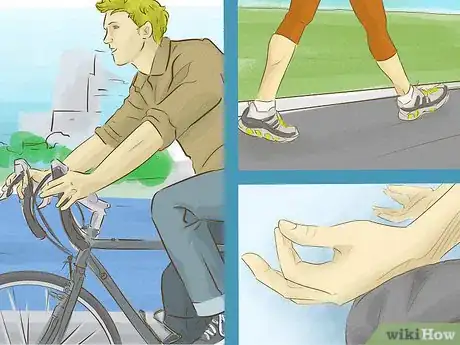
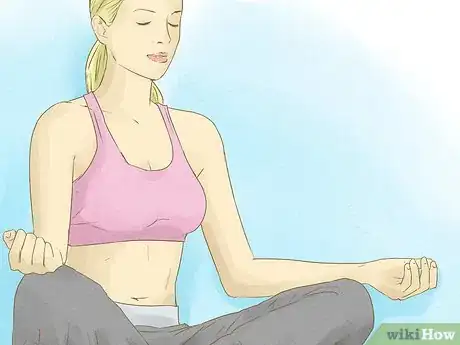
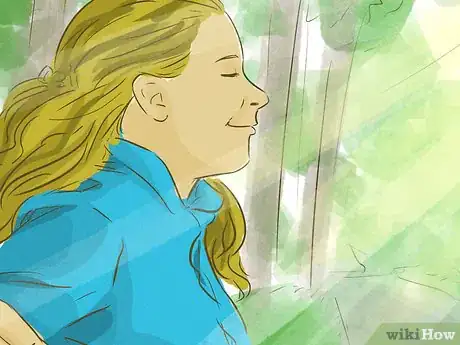

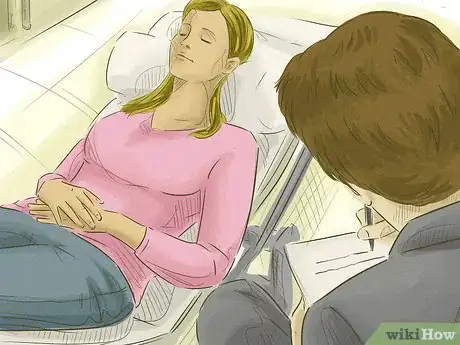
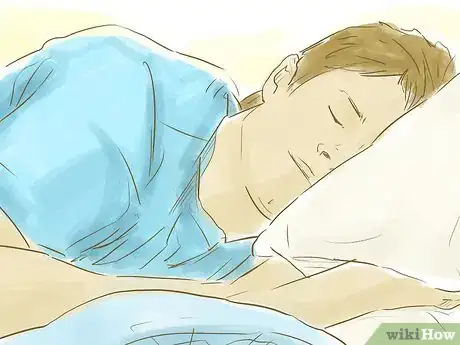
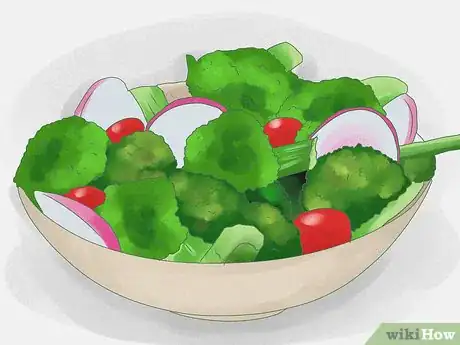


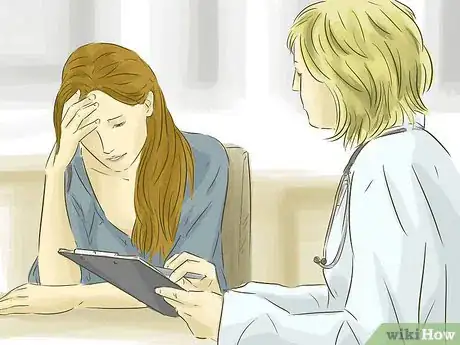
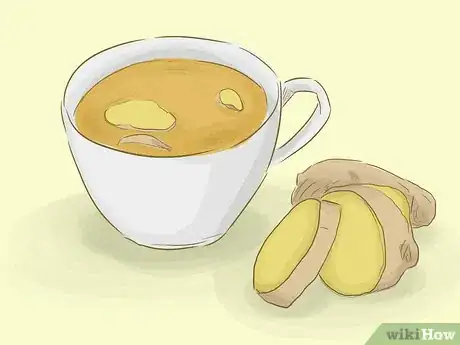
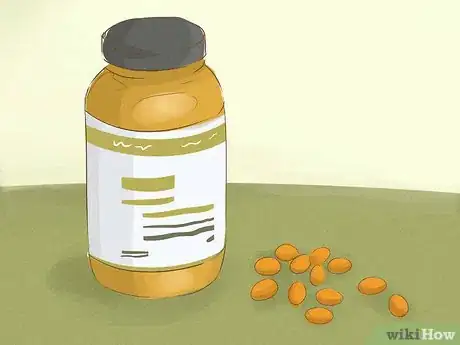
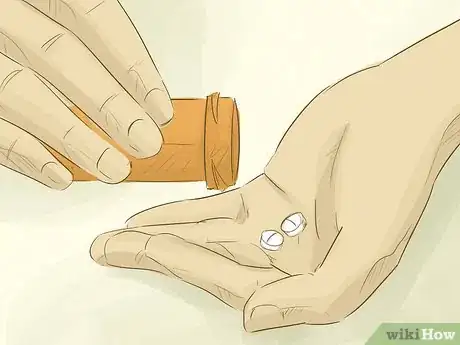


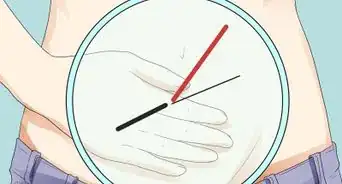

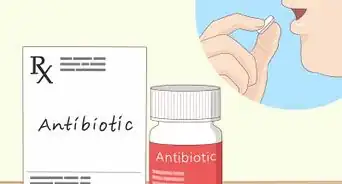


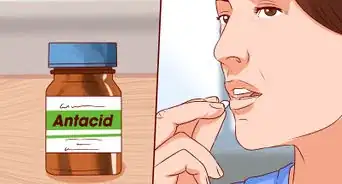


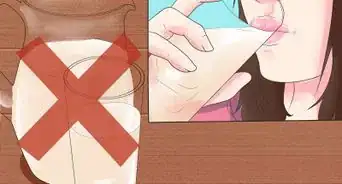















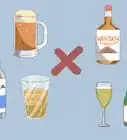



































Medical Disclaimer
The content of this article is not intended to be a substitute for professional medical advice, examination, diagnosis, or treatment. You should always contact your doctor or other qualified healthcare professional before starting, changing, or stopping any kind of health treatment.
Read More...